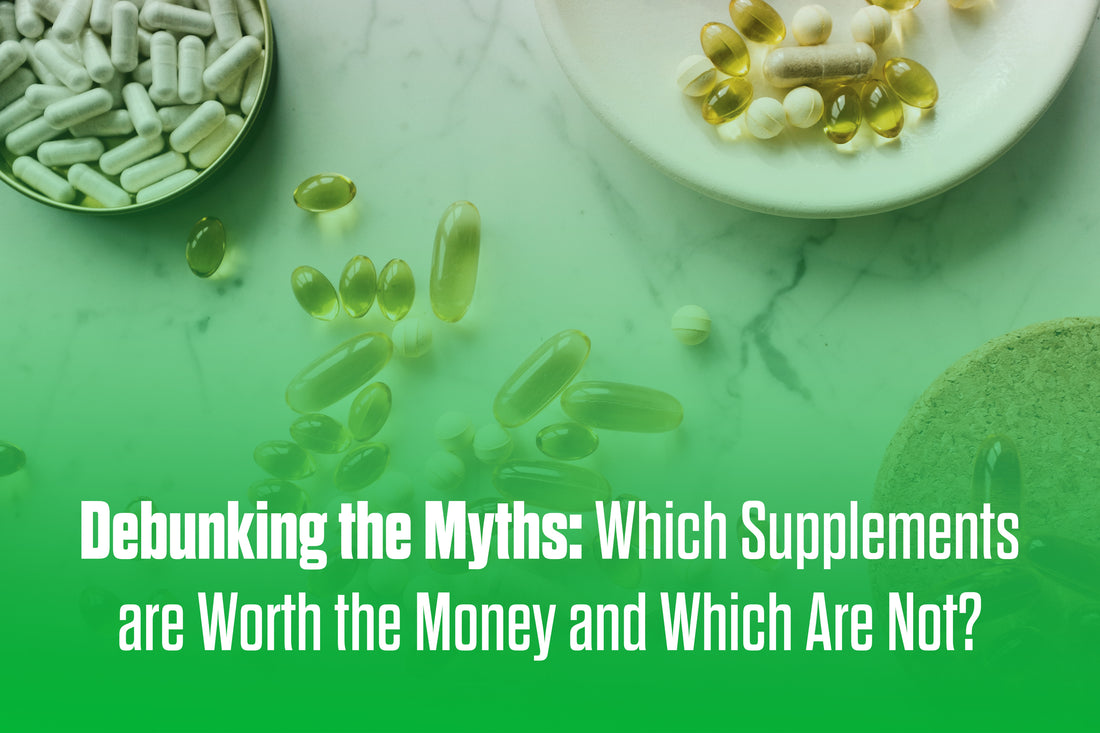
What Supplements Are Worth Your Money?
Supplements have become increasingly popular as people seek to enhance their health, fitness, and overall well-being. However, with the overwhelming variety of products available, it can be challenging to discern which supplements are truly worth the investment and which ones are simply overhyped. In this blog post, we will explore three supplements that are worth the money, including Creatine, Multivitamins, and Fish Oils, as well as three supplements that may not deliver the expected results, including BCAAs/EAA, Fat Burners, and Herbal Weight Loss Pills.
Supplements Worth the Money:
Creatine:
Creatine is one of the most well-researched and effective supplements available. It naturally occurs in the body and helps produce ATP, the primary energy currency of cells. Creatine supplementation has been shown to enhance strength, power, and muscle mass, making it particularly beneficial for athletes and those engaged in high-intensity training. Additionally, creatine has demonstrated potential cognitive benefits and may aid in certain neurological conditions. When used as directed, creatine can be a worthwhile investment for individuals seeking performance improvements.
Multivitamins:
While a balanced diet should always be the primary source of essential nutrients, multivitamin supplements can serve as a convenient and reliable way to fill in nutritional gaps. They typically contain a wide range of vitamins and minerals that support overall health, including immune function, bone health, and energy production. Multivitamins can be especially beneficial for individuals with restricted diets, nutrient deficiencies, or increased nutrient needs due to certain medical conditions or life stages. However, it's essential to choose a reputable brand and consult with a healthcare professional to ensure you're taking the appropriate formulation for your specific needs.
Fish Oils:
Fish oils, specifically omega-3 fatty acids, are well-known for their potential health benefits. These essential fats play a crucial role in heart health, brain function, and inflammation regulation. Omega-3 supplementation has been linked to a reduced risk of cardiovascular diseases, improved cognitive function, and alleviation of joint pain in certain conditions. While it's best to obtain omega-3s through whole food sources like fatty fish, such as salmon or mackerel, fish oil supplements can be a valuable addition, especially for individuals with limited fish consumption or those looking to optimize their cardiovascular and cognitive health.
Supplements Not Worth the Money:
BCAAs/EAA:
Branch Chain Amino Acids (BCAAs) and Essential Amino Acids (EAAs) are often marketed as workout enhancers that promote muscle growth and recovery. However, if you consume a balanced diet that includes adequate protein, supplementing with BCAAs or EAAs is usually unnecessary. The body requires a complete spectrum of amino acids for optimal muscle synthesis, and focusing solely on BCAAs or EAAs may lead to an imbalance. Instead, prioritize a well-rounded protein intake from whole food sources to meet your amino acid needs.
Fat Burners:
Fat burners are widely marketed as a solution for rapid weight loss or accelerated fat burning. However, these products often contain a mixture of stimulants, herbs, and other ingredients that claim to boost metabolism and fat oxidation. While some ingredients may have a slight impact on energy expenditure, their effect on long-term weight loss is minimal. Healthy weight management is best achieved through a combination of balanced nutrition, regular exercise, and sustainable lifestyle habits. Rather than relying on fat burners, focus on creating a calorie deficit through mindful eating and an active lifestyle.
Testosterone Boosters:
Testosterone boosters claim to enhance muscle growth, increase strength, and improve athletic performance. While these supplements may contain ingredients that have been linked to minor improvements in testosterone levels, the effects are generally modest and may not translate into significant changes in muscle mass or athletic performance. Moreover, long-term use of testosterone boosters can have potential risks and side effects.
